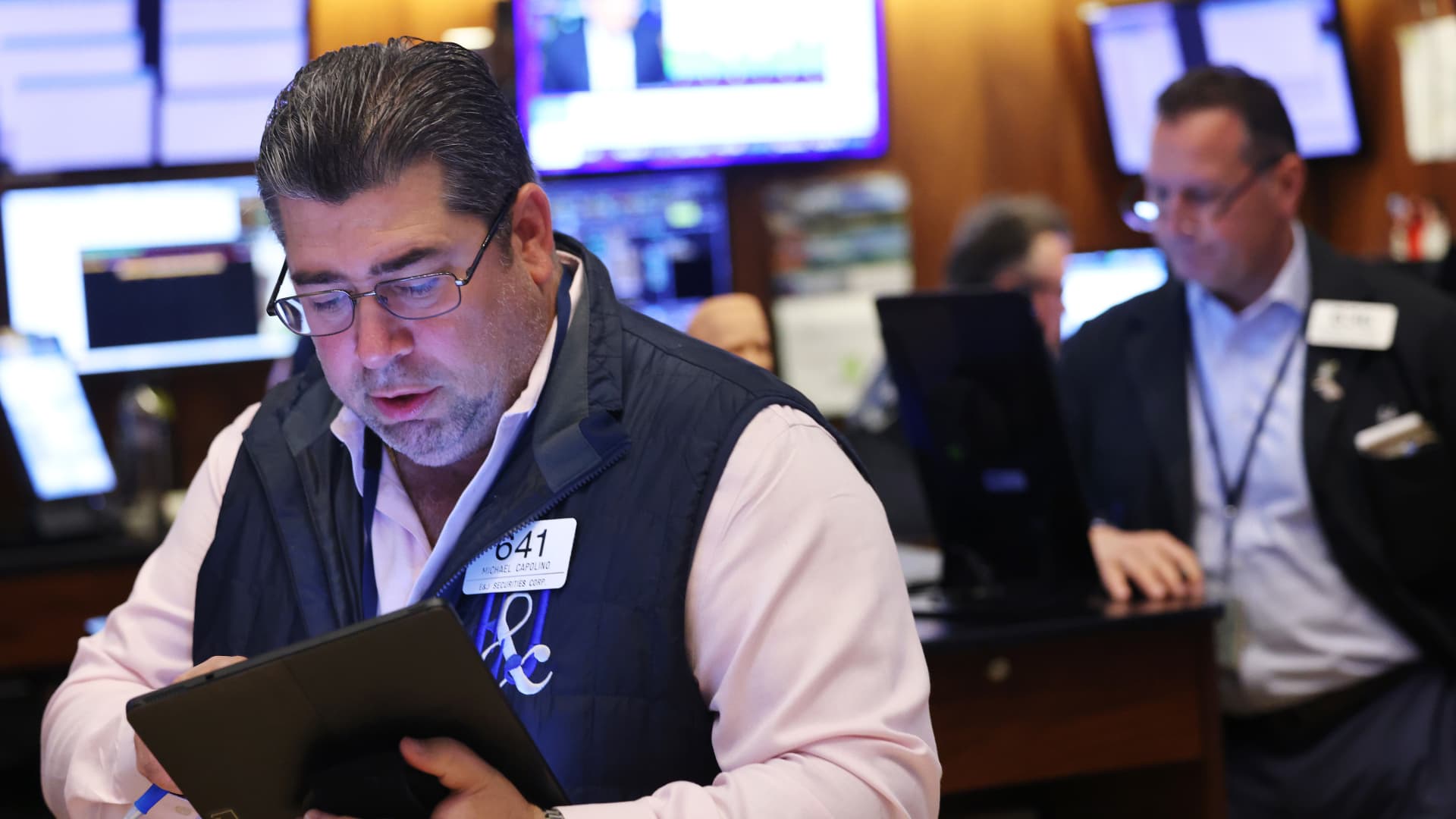The Dow Jones Industrial Average surged to a record above 42,000 on Thursday. That rally may not be sustainable, based on the venerable ” Dow Theory .” The century-old Dow Theory looks at the relationship between the Dow Industrials and the Dow Transports , and argues that market trends must be confirmed by both groups. In other words, if the Dow Industrials are going lower, then Transports most also be falling to confirm a prolonged negative run. Right now, investors are presented with the Dow Industrials at all-time highs and Transports barely positive for the year. Transports are up just 2.7% year to date, and a 13% drop in FedEx shares early Friday will likely drag it into the red for 2024. FedEx shares sold off on the back of disappointing quarterly figures. The package delivery giant also lowered the high end of its fiscal year earnings per share guidance. UPS , another piece of the Dow Transports, followed FedEx lower, losing more than 2%. FDX 5D mountain FDX year to date To be sure, other market trends paint a more positive picture. “SPX closed above 5700 yesterday, and the equal-weight RSP [ETF] also closed at a new all-time high. Therefore, the ‘false breakout’ on the known FOMC event we thought would transpire clearly didn’t play out,” Jonathan Krinsky, chief market technician at BTIG, wrote. “In the last week, we have seen new 52-week highs for every sector except Tech and Energy. That is broad based, and we have finally stopped relying on mega-cap tech to do all the heavy lifting,” he added. “Do we think some consolidation is still warranted? Yes. … Therefore we would be patient buyers, but respecting the breakout until proven otherwise.” Elsewhere on Wall Street this morning , Evercore ISI upped its price target on Amazon to $240 from $225, implying upside of 26%. “Amazon has ramped up its content on Prime Video (e.g. more NFL games including a WildCard Playoff game, 66 regular season NBA games in ’25, and, especially, the 2024 [Pickleball] World Championships). And monetizing that content via advertising has become a higher priority,” analyst Mark Mahaney wrote.





